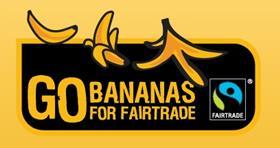
Two Philippine companies are pioneering the development of the first Fairtrade-certified bananas in Asia.
Nader and Ebrahim S/O Hassan Philippines (NEH) and Fresh Studio Innovations Asia (FSIA) have formed a partnership with a family-run farm in Davao del Norte in an attempt to gain Fairtrade accreditation for their bananas.
NEH general manager Jeroen de Haas said the growers in question had the desire to diversify their business, and wanted to improve the wages and living conditions for their workers, but were limited by the high costs associated with gaining certification.
“NEH, sharing the same passion for diversification and concerned with improving not only the livelihood of growers, but also the community where they operate, has formed a partnership with this grower to develop the Fairtrade programme,” he said.
The Fairtrade organisation was created in the Netherlands during the 1980’s and was designed to help producers and workers in developing countries who had been economically disadvantaged by the conventional trading system.
Products displaying the Fairtrade mark must adhere to international certification standards, and this criteria is assessed by the Fairtrade Labeling Organisation (FLO).
FSIA have spearheaded feasibility studies into the plan and have been working with NEH and its growers every step of the way to ensure that certification is granted.
“Several processes were undertaken with the grower, geared towards creating a sustainable company,” Mr de Haas said.
An FSIA team, consisting of engineers, human resource specialists, social scientists and agronomists, have been working closely with the growers to provide hands-on help.
Now it looks as though their hard work is about to pay off.
“Accreditation is expected by the end of the first quarter next year,” said Mr de Haas.
The main benefit of the Fairtrade bananas in the Philippines, according to Mr de Haas, is that the grower is able to offer 60 farm workers a permanent working contract, a minimum wage, health insurance and a pension fund.
“But the surrounding community will also benefit in multiple ways,” he said.
The Philippines has been slower to develop Fairtrade bananas than other major banana-growing countries and Mr de Haas believes that the concept is still largely unknown in Asia.
“In Asia, Fairtrade – as a market driven concept – is not yet known,” he said
“NEH and FSIA are developing the market to raise awareness and education of consumers on Fairtrade.”
The higher cost of Fairtrade products, as well as the time and cost associated with gaining certification, mean that it is a difficult path for companies to take, but Mr de Haas believes there is export potential for the plan.
“There is huge potential for Fairtrade bananas in Japan, Korea and the Middle East, but the low awareness will make entry more challenging,” he said.
He added that consumers’ growing concerns over the environment and global poverty reduction are what give Fairtrade products an edge in the marketplace.



